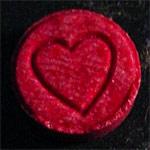MyGen
Profile Generator
Hello
My name is methylenedioxymethamphetamine
but known as Ecstasy
i have plenty of nicknames
E-BOMBS
Rolls
Beans
Disco Biscuts
Adam
X
E
MaDMAn
Jack And Jills
Vitiman E
Vitiman X
XTC
Kit Kat
Rollies
Skittles
thizzles
Candy
Love Drug
IM MADE IN EUROPE
BUT IVE MADE MY WAY TO THE USA.
YOU CAN FIND ME ANYWHERE
CANT FIND ME..GO TO A RAVE OR NIGHT CLUB..
IM AFFORDABLE BUT SOMETIMES CAN BE QUITE EXPENSIVE
I USUALLY GO FROM 10 TO 30 DOLLERS UNLESS U BUY LOTS OF ME
IN SOME PARTS OF EUROPE IM MANUFACTORED FOR 25 TO 50 CENTS
IM NOT AS BAD AS PEOPLE SAY I AM..JUST DONT DO ME TO OFTEN
I USUALLY LAST BETWEEN 3 TO 8 HOURS A POP
I CAN BE BASED WITH COCAINE,METH,ACID,HEROINE,KETAMINE,AND SOME OTHER DRUGS.
I CAN BE SWALLOWED, SNORTED,INJECTED OR SMOKED
I CAN make U AND UR ENEMIES BESTEST FRIENDS
TALK CONSTANTLY
MAKE U SEE COLORS
DANCE TILL U DROP
LOVE THE WORLD....EVEN THAT TREE..DAM
IM ADVENTOUROUS AND VERY OUTGOING
IM THAT GOOD..TRUST ME...
THEY SAY IM BETTER WITH ORANGE JUICE.
cigs are good wit me..mentholz
I CAN MAKE U HALLUCINATE
U FEEL SAD..TRY ME..
IM NOT REALLY ADDICTING..U MIGHT GET CRAVINGS.
I WILL MAKE UR SEX 10X BETTER.
FUCK IM THAT GOOD
YEAH THATS ME.....ECSTASY
IM PRETTY FUCKIN INTENSE
SO WHY WAIT....TRY ME......
***SHORT TERM EFFECTS OF USING ECSTASY***
While it is not as addictive as heroin or cocaine, ecstasy can cause other adverse effects including nausea, hallucinations, chills, sweating, increases in body temperature, tremors, involuntary teeth clenching, muscle cramping, and blurred vision. Ecstasy users also report after-effects of anxiety, paranoia, and depression. An ecstasy overdose is characterized by high blood pressure, faintness, panic attacks, and, in more severe cases, loss of consciousness, seizures, and a drastic rise in body temperature. Ecstasy overdoses can be fatal, as they may result in heart failure or extreme heat stroke.
Short-term effects of ecstasy -
*Nausea
*Hallucinations
*Chills & sweating
*Increased body temp
*Tremors
*Muscle cramping
*Blurred vision
The effects start after about 20 minutes and can last for hours. These is a 'rush' feeling followed by a feeling of calm and a sense of well being to those around, often with a heightened perception of color and sound. Some people actually feel sick and experience a stiffening up of arms, legs and particularly the jaw along with sensations of thirst, sleeplessness, depression and paranoia. Gives a feeling of energy. Some mild hallucinogenic effects.
Many problems users encounter with Ecstasy are similar to those found with the use of amphetamines and cocaine. They include increases in heart rate and blood pressure, nausea, blurred vision, faintness, chills, sweating, and such psychological problems as confusion, depression, sleep problems, craving, severe anxiety, paranoia, and psychotic episodes. Ecstasy's chemical cousin, MDA, destroys cells that produce serotonin in the brain. These cells play a direct roll in regulating aggression, mood, sexual activity, sleep, and sensitivity to pain. Methamphetamine, also similar to Ecstasy, damages brain cells that produce dopamine. Scientists have now shown that ecstasy not only makes the brain's nerve branches and endings degenerate, but also makes them "re-grow, but abnormally - failing to reconnect with some brain areas and connecting elsewhere with the wrong areas. These reconnections may be permanent, resulting in cognitive impairments, changes in emotion, learning, memory, or hormone-like chemical abnormalities
***LONG TERM EFFECTS OF USING ECSTASY***
The effects of long-term ecstasy use are just beginning to undergo scientific analysis. In 1998, the National Institute of Mental Health conducted a study of a small group of habitual ecstasy users who were abstaining from use. The study revealed that the abstinent users suffered damage to the neurons in the brain that transmit serotonin, an important biochemical involved in a variety of critical functions including learning, sleep, and integration of emotion. The results of the study indicate that recreational ecstasy users may be at risk of developing permanent brain damage that may manifest itself in depression, anxiety, memory loss, and other neuropsychotic disorders.
Ecstasy stimulates the release of the neurotransmitter serotonin from brain neurons, producing a high that lasts from several minutes to an hour. The drug's rewarding effects vary with the individual taking it, the dose and purity, and the environment in which it is taken. Ecstasy can produce stimulant effects such as an enhanced sense of pleasure and self-confidence and increased energy. Its psychedelic effects include feelings of peacefulness, acceptance, and empathy. Users claim they experience feelings of closeness with others and a desire to touch them. Because ecstasy engenders feelings of closeness and trust and has a short duration of action, some clinicians claim that the drug is potentially valuable as a psychotherapeutic agent. However, ecstasy is classified by Federal regulators as a drug with no accepted medical use.
